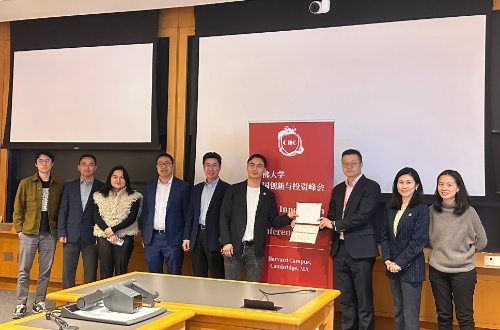Research Team of Shandong University Reveals Global Overconsumption Driving Earth Breach Safe Boundaries
 2024-11-22
2024-11-22
 Shandong University
HaiPress
Shandong University
HaiPress
JINAN,China,Nov. 21,2024 -- Recently,the Weihai Institute for Interdisciplinary Research team of Shandong University,in collaboration with multiple research teams both domestically and internationally,has made advancements in sustainable consumption. The related achievement,titled "Keeping the global consumption within the planetary boundaries," has been published online inNatureas a research paper. Professors Tian Peipei and Zhong Honglin from Shandong University are the co-first authors of the paper,while Professors Feng Kuishuang and Sun Laixiang from the University of Maryland,Professor Zhang Ning from Shandong University,and Professor Klaus Hubacek from the University of Groningen are the co-corresponding authors. Major contributors to the paper include Professor Liu Yu from Peking University,doctoral student Chen Xiangjie from the University of Maryland,and Shao Xuan,a graduate of Shandong University. Shandong University is the first affiliation listed for the paper.
Over the past century,the sharp rise in global demand for goods and services has triggered unsustainable resource extraction and production expansion,leading to many environmental indicators surpassing the safe operating space of the Earth system (planetary boundaries). However,the distribution of responsibility for exceeding planetary boundaries is uneven among different populations. Income and wealth inequality have resulted in significant disparities in global consumption and environmental footprints. Understanding and quantifying the ecological footprints of consumers at different expenditure levels globally,along with their responsibilities for breaching planetary boundaries,and proposing targeted mitigation measures are crucial issues at the forefront of sustainable development research.
Based on a self-constructed database of global consumption encompassing 201 expenditure levels and 168 countries,the research team depicted the inequality in six major environmental footprints (carbon,land,nitrogen,phosphorus,water,and biodiversity) of global consumption. They quantified the responsibility of ecological footprints at different consumption levels for breaching key global planetary boundary indicators and proposed mitigation measures for high consumers' global environmental pressures.
The study revealed that the per capita environmental footprint of the top 10% of global consumers is 4.2 to 77 times that of the bottom 10%. Between 51% and 91% of planetary boundary breach responsibilities can be attributed to the top 20% of global consumers. If the top 20% of global consumers adopt the lowest impact consumption levels and patterns within their groups,global environmental pressures could be reduced by 25% to 53%. In this scenario,focusing solely on actions in the food and services sectors would be adequate to restore land system changes and biosphere integrity within their respective planetary boundary budgets. The research underscores the urgent need for high consumers to sensibly reduce consumption and enhance consumption efficiency to address global planetary boundary transgressions effectively.






